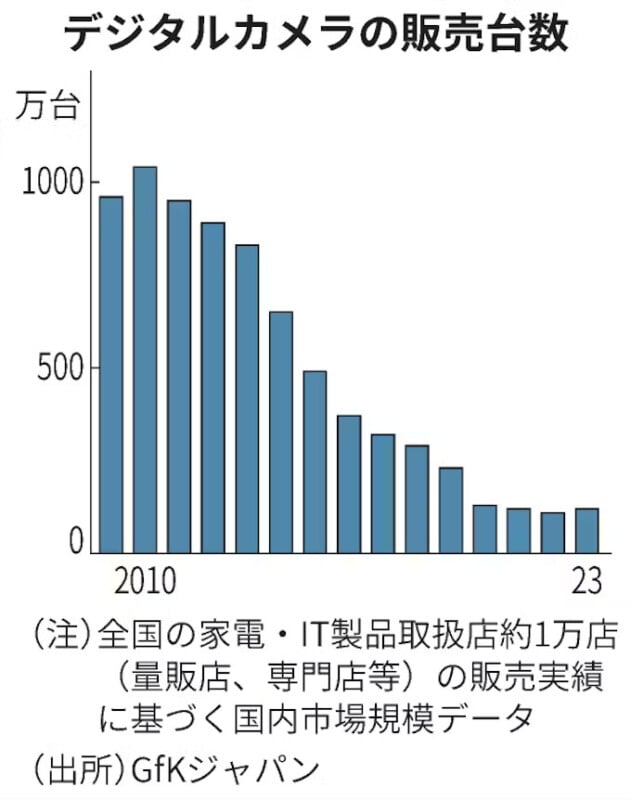Camera Sales Grew For First Time in 13 Years, But Not for Canon
![]()
Camera sales have been on the up for several years now but that was mostly in contrast to how poorly the industry fared during the height of the pandemic. But this time, a research firm in Japan reports that the industry will grow for the first time in over a decade.
GfK Japan announced that the digital camera market will show positive growth for the first time in 13 years, Nikkei reports. While this report only covers Japan, it does illustrate a global trend: cameras are popular and consumers are buying them.
According to the report, the digital camera market has been in a steady decline since 2010 as a result of the widespread use of smartphones to capture everyday photos and videos. That finally changed this past fiscal year.

Nikkei attributes the growth to the number of more expensive interchangeable lens cameras and the overall proportion of them compared to all available digital cameras, resulting in more sales of higher value.
One company that did not seem to enjoy the growth of the industry, however, was Canon. Earlier this week, Canon reported that its operating profit declined from January to March of 2024 by 5% compared to the same period last year — the first time in four years that its profits declined compared to the same period the previous year.
Nikkei reports that Canon cited slower than expected digital camera sales and “weak” shipments, which is curious given the industry’s trend in the opposite direction. Its imaging business operating income decreased by 62%.
There are a lot of factors at play that resulted in Canon’s report, but it’s difficult not to blame Canon’s quiet year to some degree. In 2023, Canon announced multiple interesting new lenses for its RF mount but despite launching four new cameras, few were exciting. While the R7 and R6 II are very good additions to Canon’s APS-C lineup, the R100 was an outright disappointment. Taken as a group, they haven’t been able to move the needle much.
Perhaps the tepid response to its APS-C offerings is why Canon opted to finally let Sigma and Tamron sell lenses for its crop sensor RF cameras. The biggest complaint against Canon APS-C was the lack of optical choices, and that problem may be on its way to being solved now.
On the high end, things aren’t much better. The R5 is now quite long in the tooth, the R3 does not compete well compared to the Nikon Z8, Nikon Z9, or Sony a9 III, and its lower-end cameras clearly aren’t popular enough to make up the difference.
2024 is now a very important year for Canon both from a prestige and profit standpoint: there is a lot to improve on if it wants to attain its goal of overwhelming number one share of the mirrorless market by 2026.
Image credits: Header photo licensed via Depositphotos.